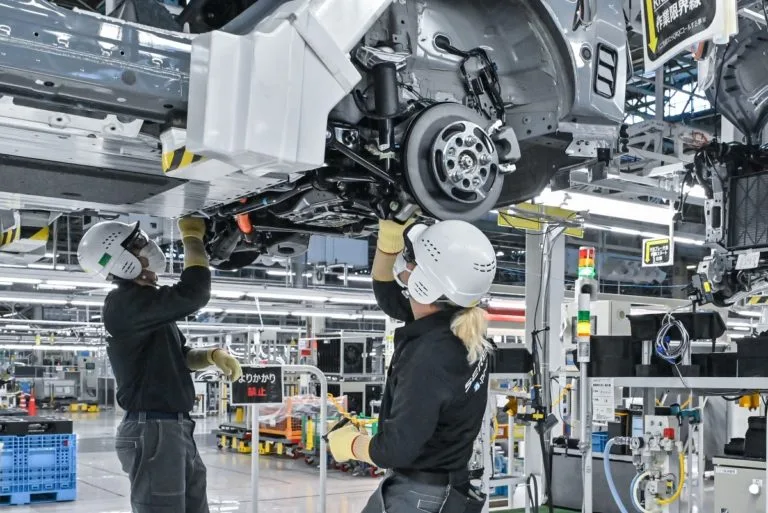Nissan, the embattled Japanese automaker, announced Tuesday it will cease vehicle production at its Oppama plant by the end of fiscal year 2027, marking a significant step in its ongoing global restructuring efforts.
The company, which posted a net loss of 671 billion yen ($4.5 billion) last year, is undergoing a major overhaul that includes cutting 15% of its global workforce and consolidating manufacturing operations.
“Vehicle production at the Oppama plant will end at the close of fiscal year 2027,” Nissan said in a statement. Operations will be transferred to an existing factory in Kyushu, on Japan’s southern island, the company added.
Located just outside Yokohama, the Oppama plant is one of Nissan’s six domestic manufacturing sites. It employed around 3,900 workers as of October 2024 and has been in operation since 1961. The factory was a pioneer in producing advanced vehicles, including the Nissan LEAF—the world’s first mass-market electric vehicle.
The move comes as part of a broader plan announced in May to consolidate Nissan’s global vehicle production footprint from 17 plants to 10 by fiscal 2027.
Nissan has faced mounting challenges in recent years. Its heavily indebted balance sheet, weak profitability, and ageing vehicle lineup have drawn criticism from credit ratings agencies, with Moody’s downgrading the company’s bonds to junk status.
A proposed merger with rival Honda—which was widely seen as a potential lifeline—collapsed earlier this year after Honda suggested Nissan become a subsidiary, a condition the latter rejected.
The carmaker’s troubles are compounded by fierce competition from Chinese EV manufacturers and growing geopolitical headwinds. In early 2025, U.S. President Donald Trump imposed a 25% tariff on imported Japanese vehicles, disproportionately affecting Nissan due to its historically price-sensitive customer base.
In a further blow, Nissan recently scrapped plans to build a $1-billion battery plant in southern Japan, citing an increasingly difficult business environment.
One potential path forward could involve new partnerships. Taiwanese electronics giant Hon Hai Precision Industry Co., better known as Foxconn—the maker of Apple’s iPhones—has signaled interest in the automotive sector. In February, Foxconn said it was open to acquiring Renault’s stake in Nissan.
Nissan’s long-term recovery remains uncertain, as it navigates a rapidly evolving auto industry and seeks to regain competitiveness in the global EV race.
AFP


